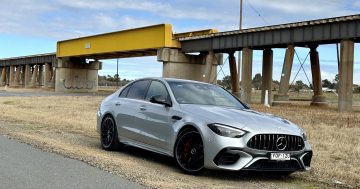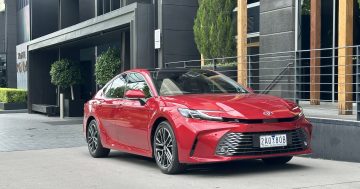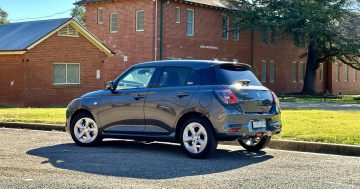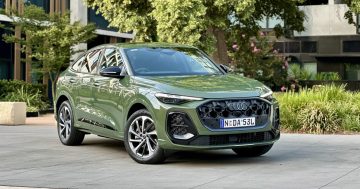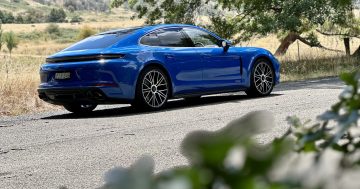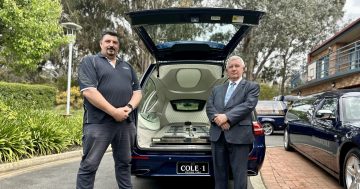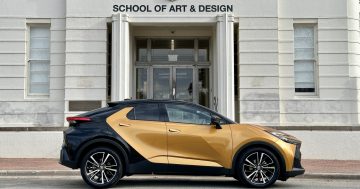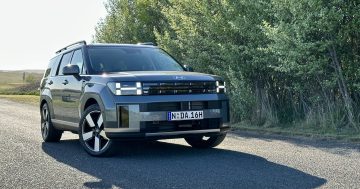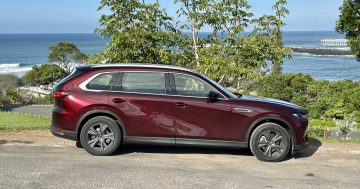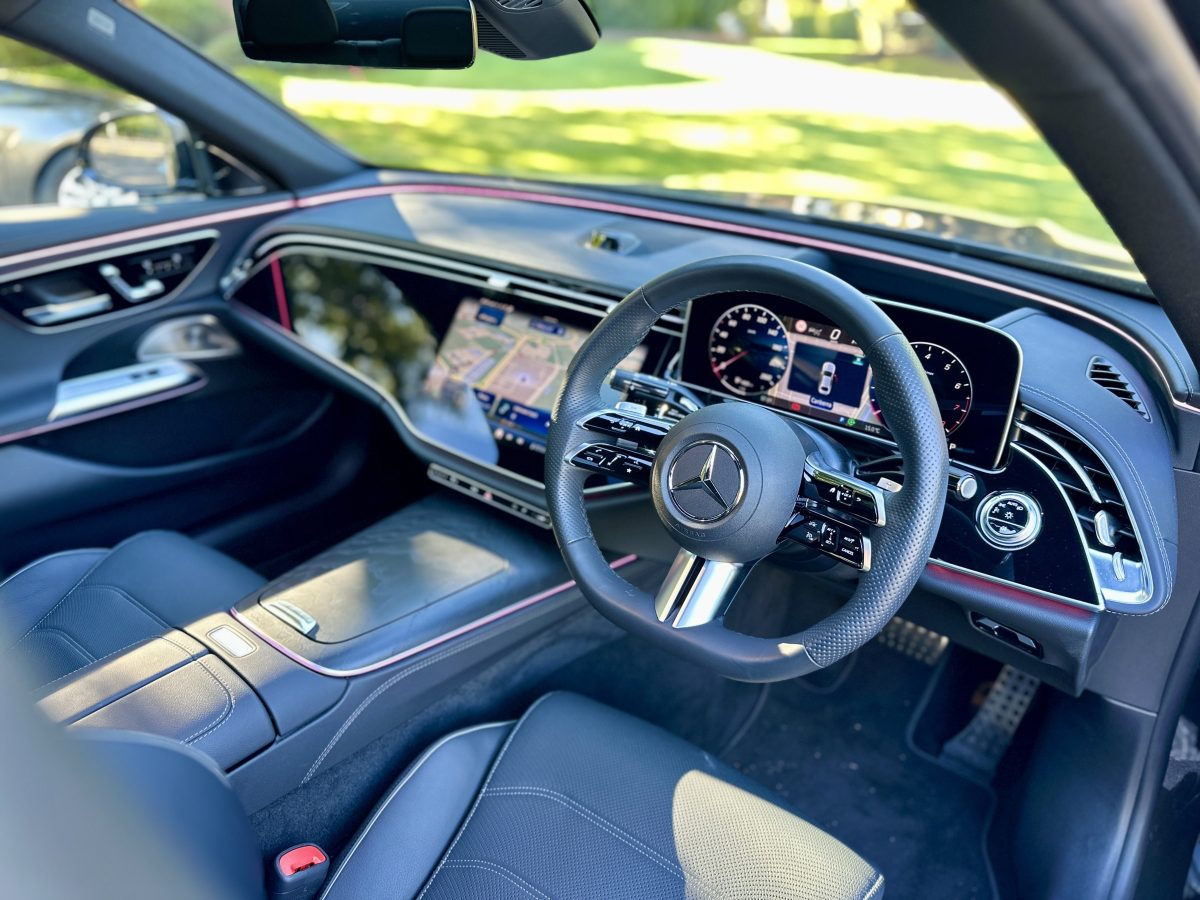
Yep, that’s one massive slab of screen across the dash. Photo: James Coleman.
One of the first car pictures I ever cut from a magazine and pinned to the bedroom wall was of a Mercedes-Benz E-Class. It was the 2009 coupe model, with the split headlights, back when the E-Class exuded elegance and the lines were taut.
I’m not sure I’ll be doing the same with this all-new sixth-generation model.
Look, I still love the shape, and grander wheels have never been fitted to a car. But parked on my driveway a week after the Toyota Camry – another five-seater sedan – it just looks a bit bloated.
Then there are the fake vents in the rear bumper and, worse, fake exhaust outlets (the actual pipes are tucked away underneath).
In very German logical order, you’ll know the E-Class as the one that fits between the C-Class and S-Class in terms of size – the brand’s mainstay around which all the others orbit. So much so that – fun fact incoming – the E-Class was the number-one taxi you’d see in West Germany back in the day, configured from the factory for the job.
This year, things will get even easier because until AMG works on it, there will be only one E-Class model—the E300, with a two-litre turbocharged petrol-electric “mild hybrid” drivetrain.
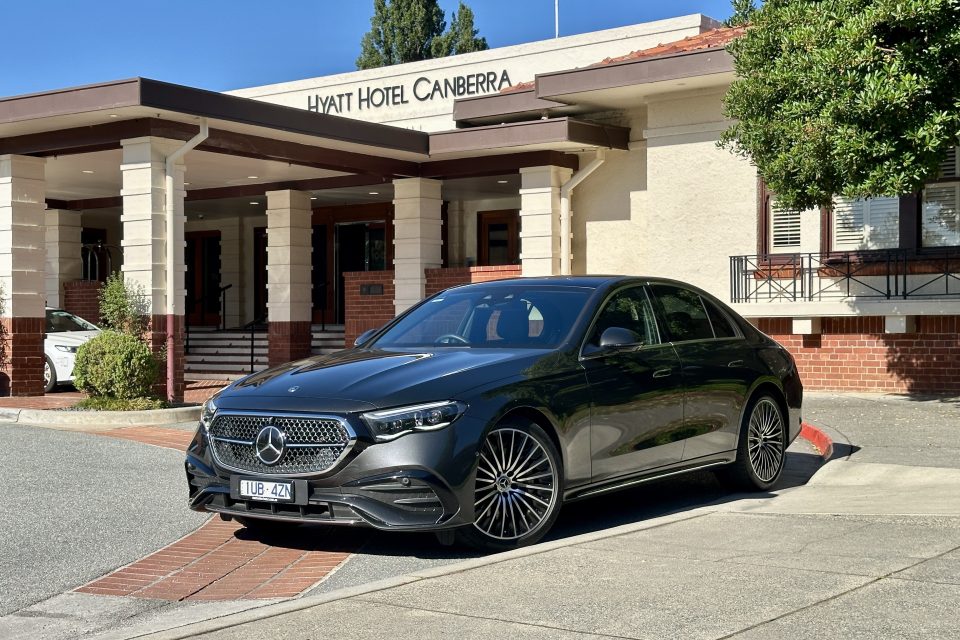
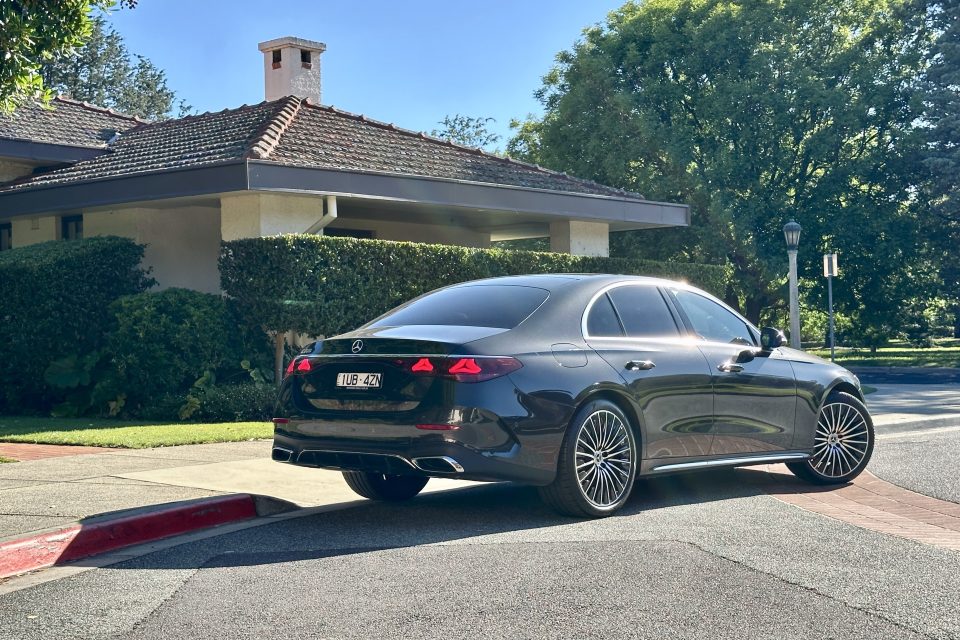
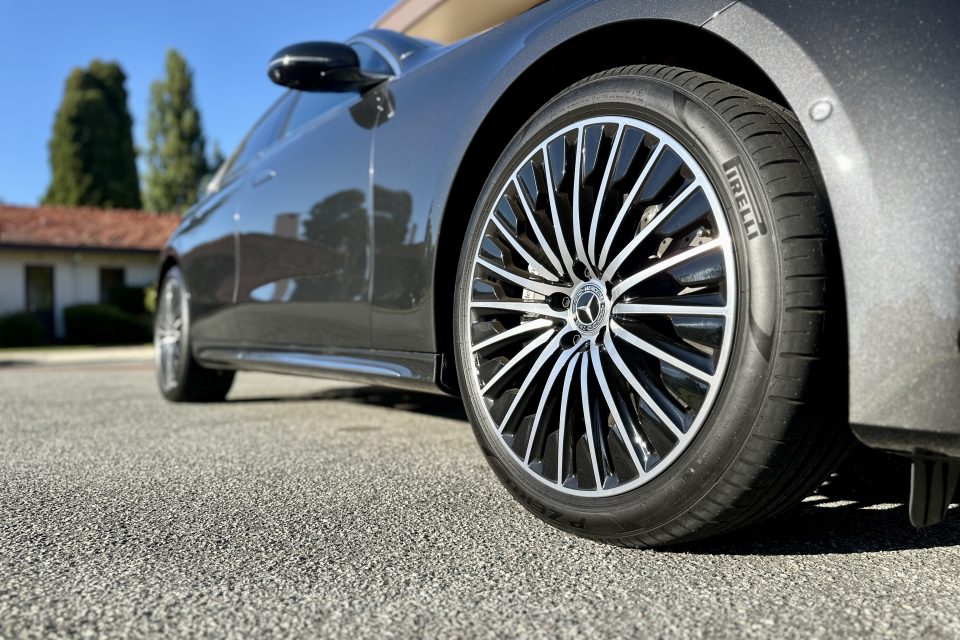
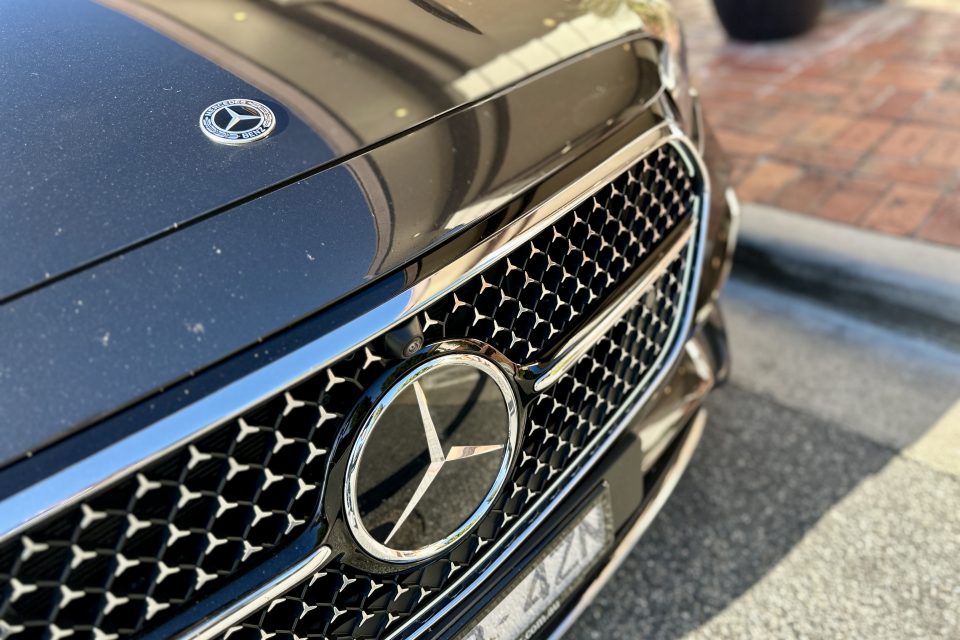
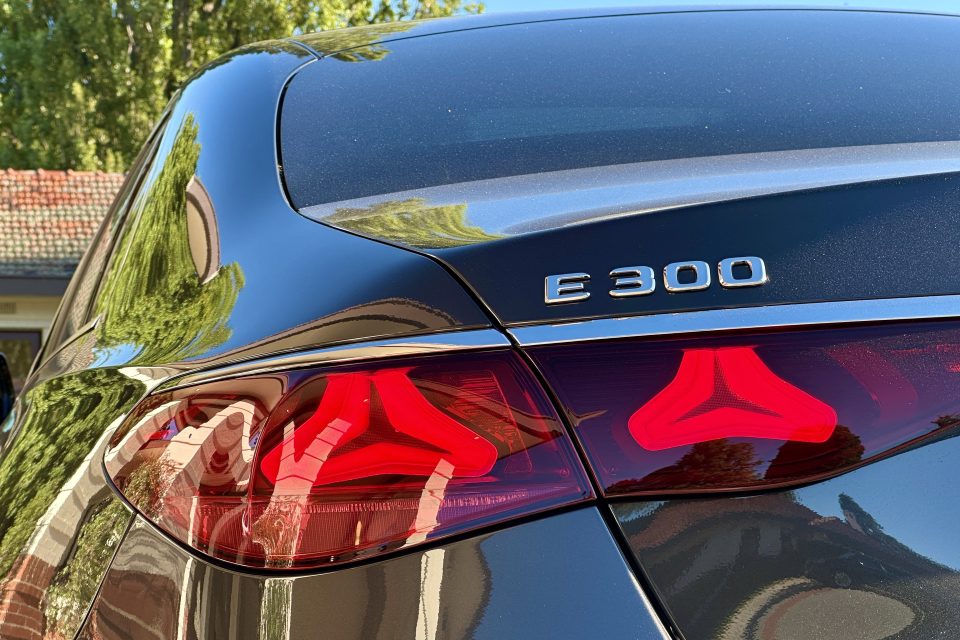
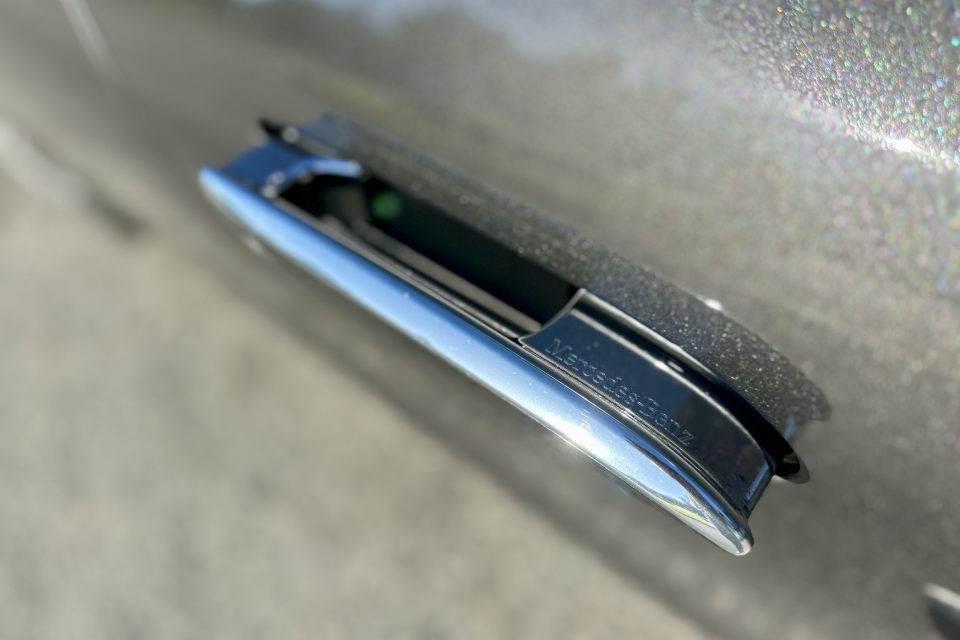
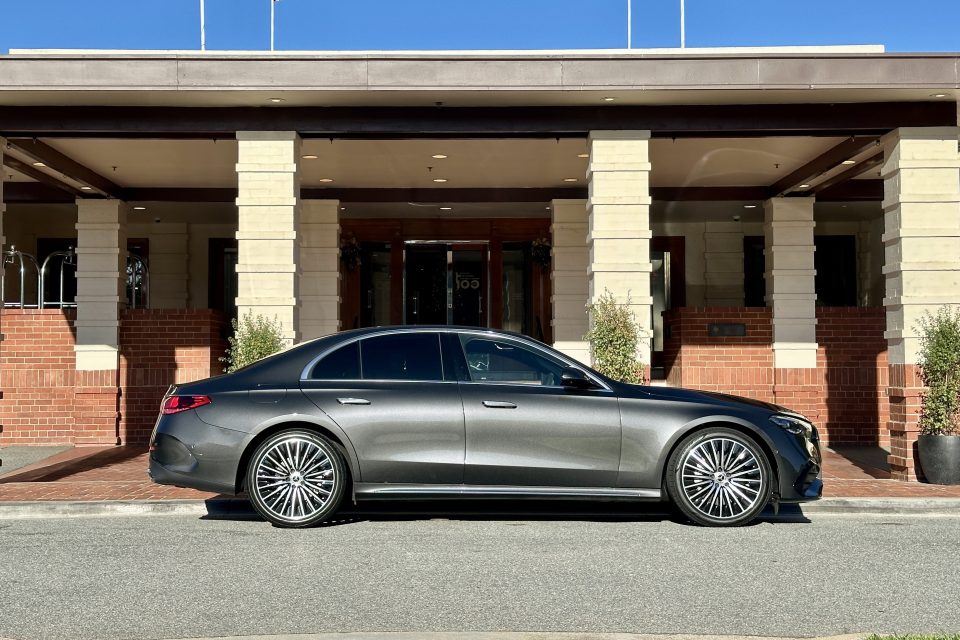
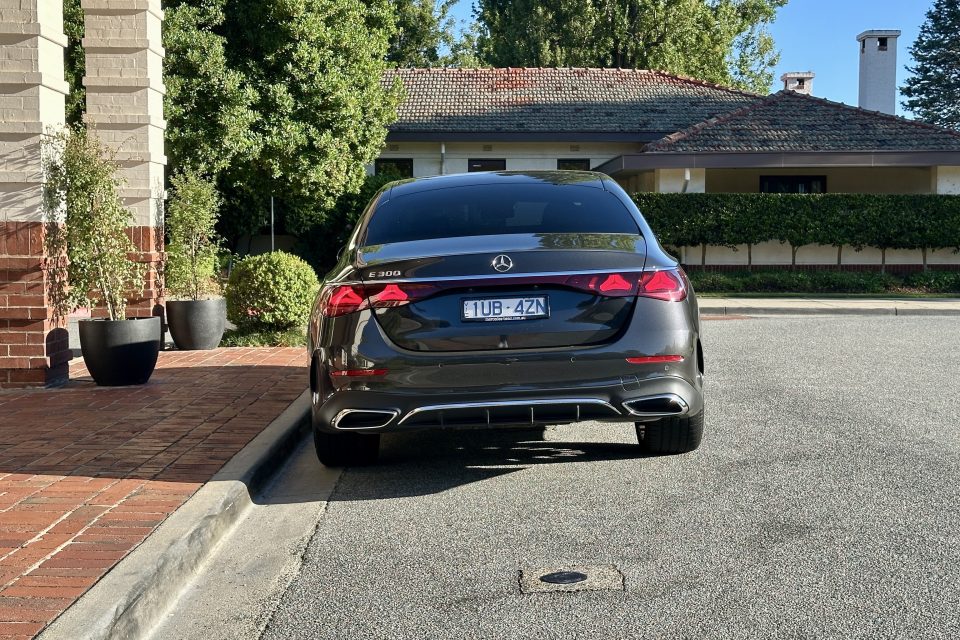
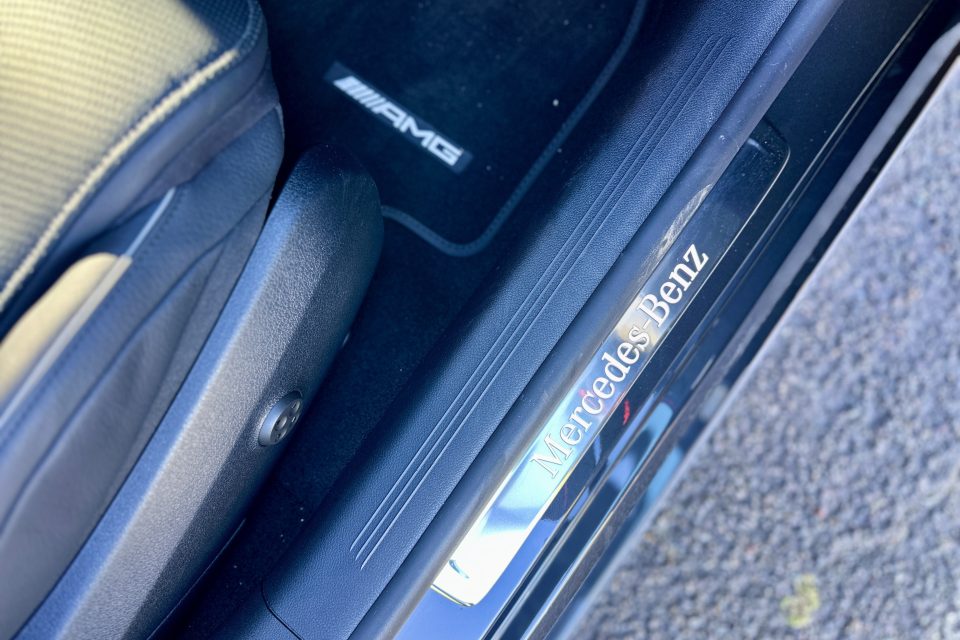
It starts at $131,500, plus on-road costs, and another $9400 if you want the ‘Plus Package’ with its ‘Airmatic’ air suspension, rear-axle steering, soft-close doors, quad-zone climate control, a light-up grille and ‘light projection’ for the LED headlights. Which you would get. Because it’s an E-Class.
It’s big, predictably, but not all that useful for the five people it’s meant to seat because of the enormous transmission hump in the rear, which means any unlucky middle-seat passenger will have to sit with their knees nigh in their mouth.
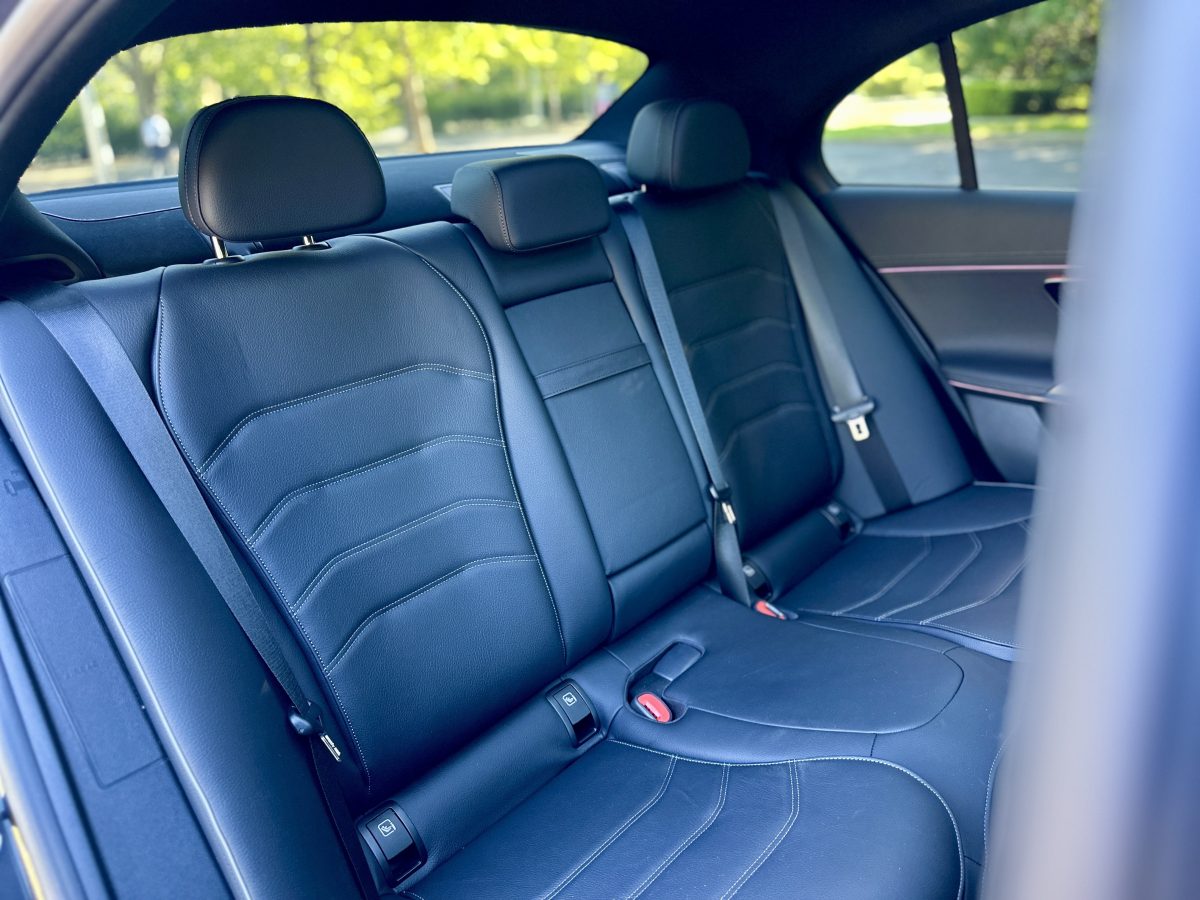
The middle seat is best reserved for very small people. Photo: James Coleman.
It also feels big and a bit cumbersome. Bumps on the highway are like cresting a wave in an oil tanker.
The mild hybrid’s 190 kW makes it more powerful than BMW or Audi’s equivalent units but it also weighs just shy of two tonnes. So it has oomph—you just have to dig for it. It needs time to gird its loins.
This is perfectly forgivable, but – and it pains me to say it – I actually found last week’s Camry to be quieter and smoother.
The “mild-hybrid” bit means the E’s electric motor is only there to help – never running on its own. There’s barely a hiccup from this interplay, but the nine-speed automatic gearbox seems to lurch strangely when setting off or coming to a stop.
And more wind noise makes its way inside than you’d expect. Which, in turn, dampens the full effect of the mighty ‘4D’ Burmester sound system with its in-seat subwoofers.
But look, the rest is certainly pure class.
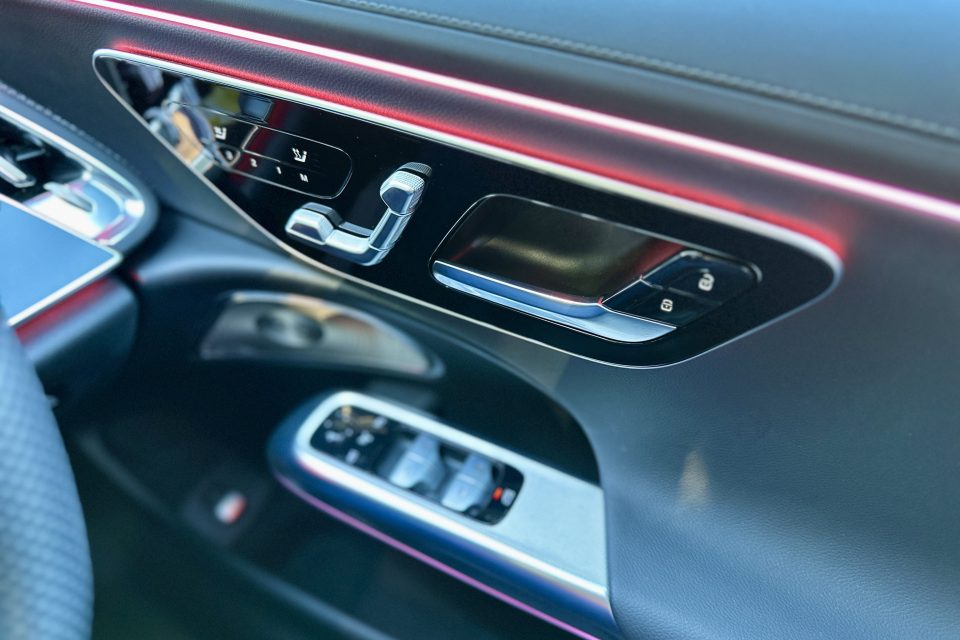
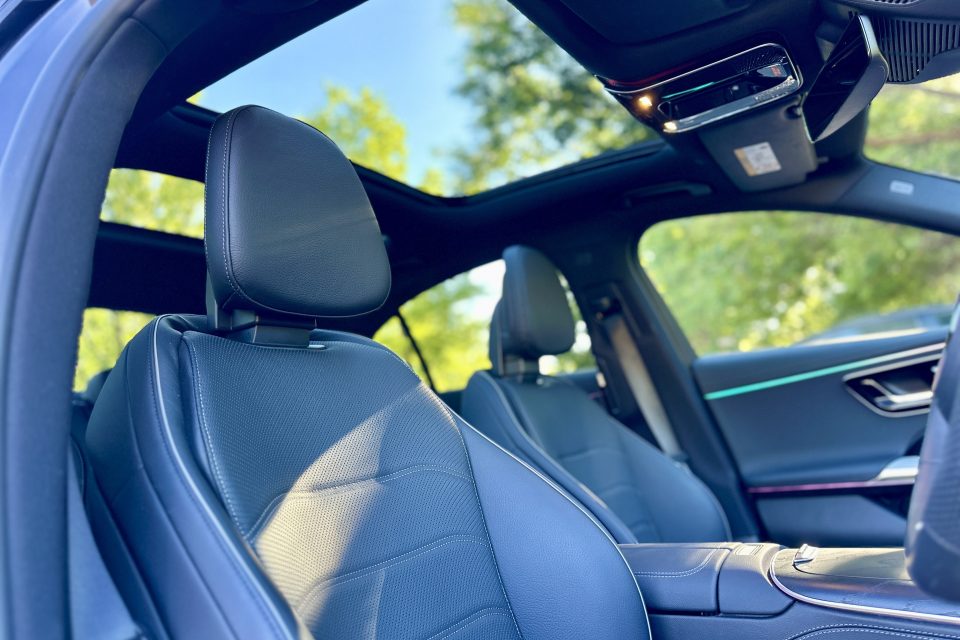
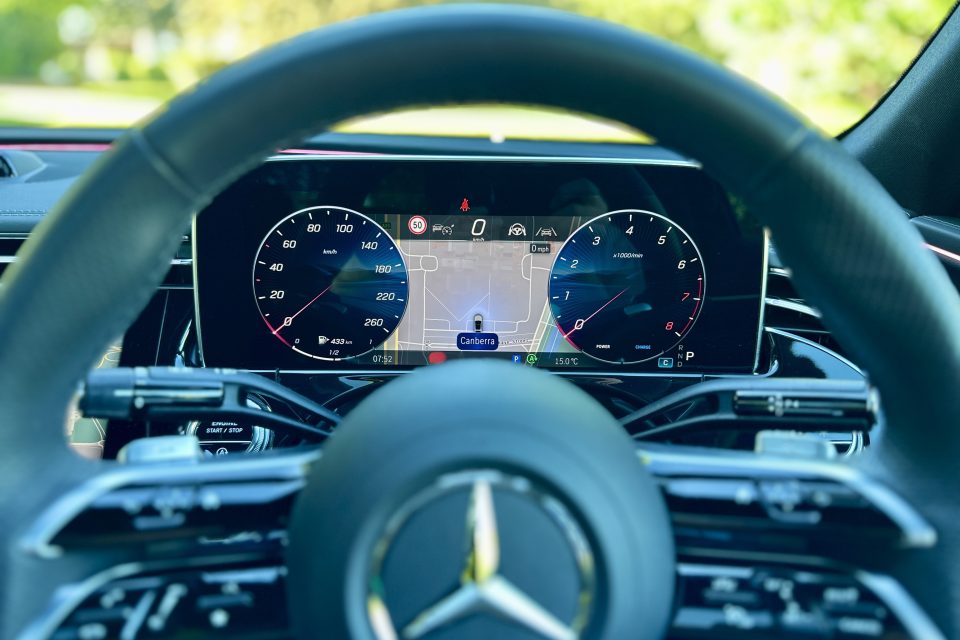
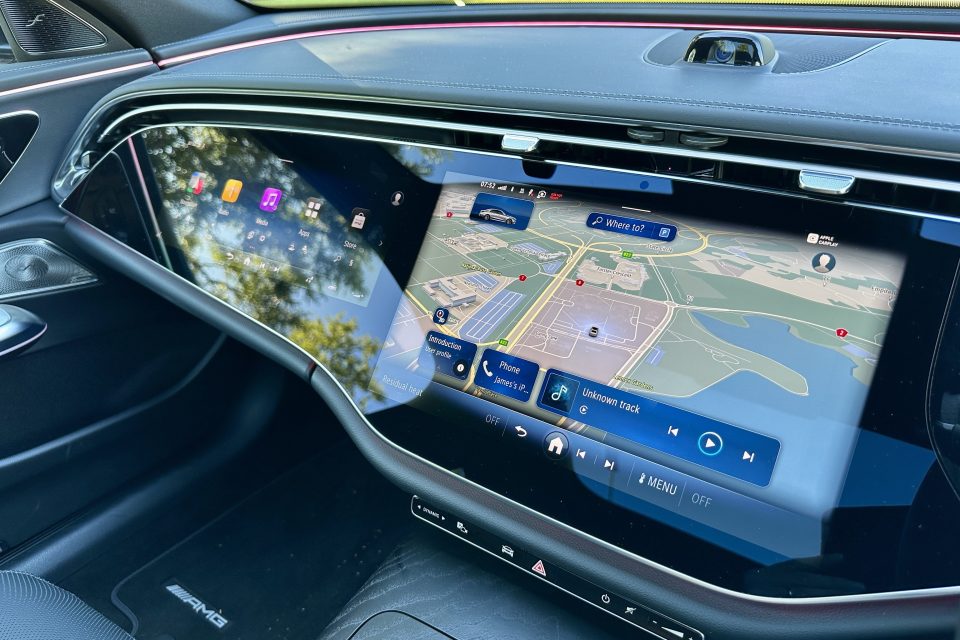
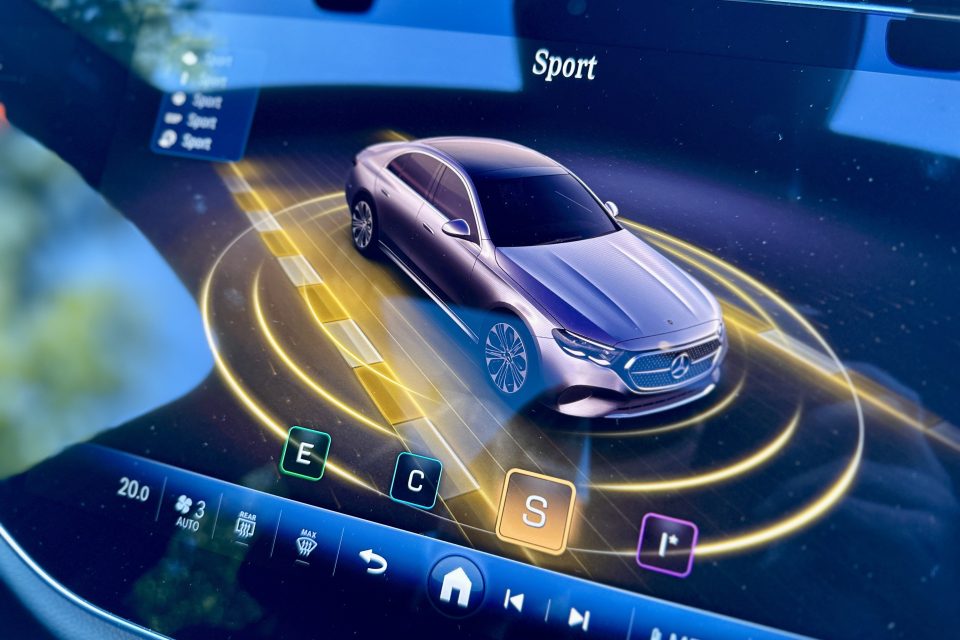
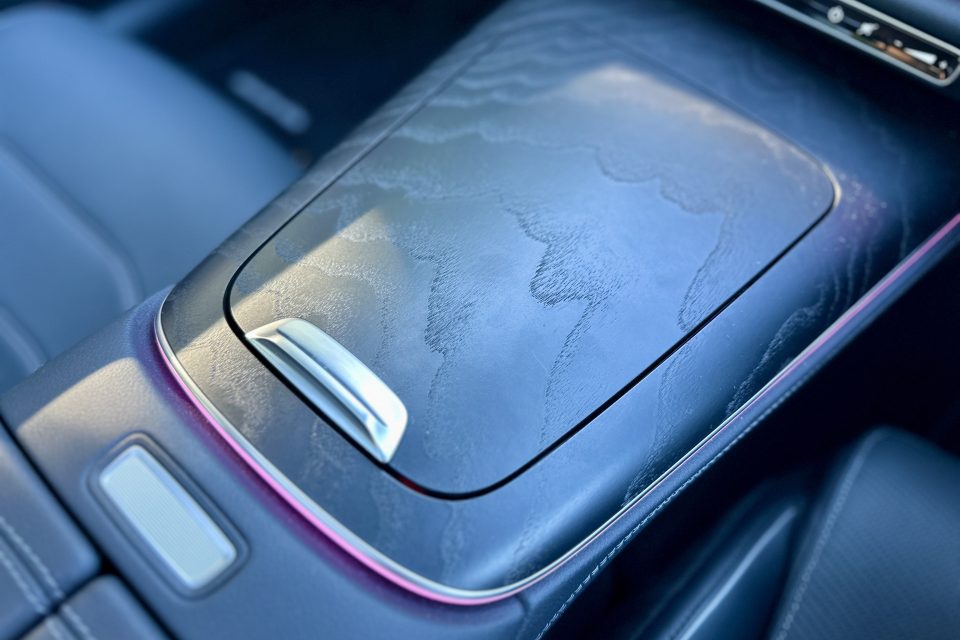
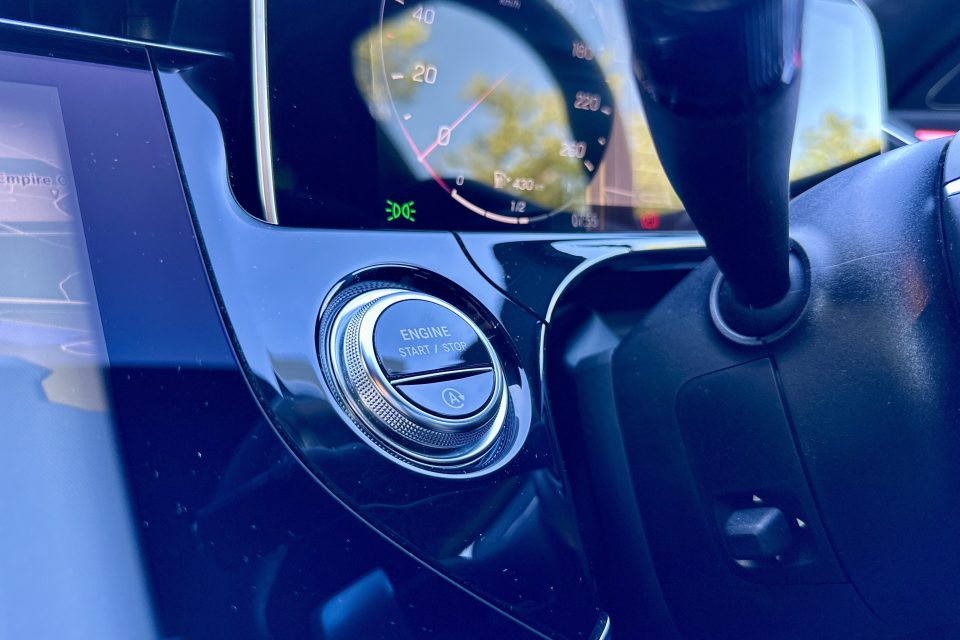
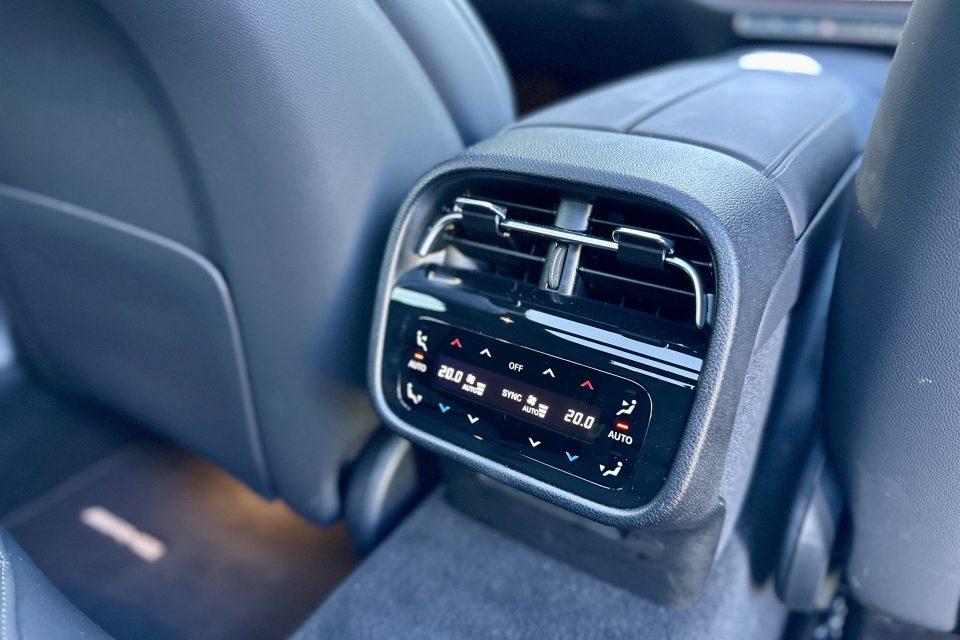
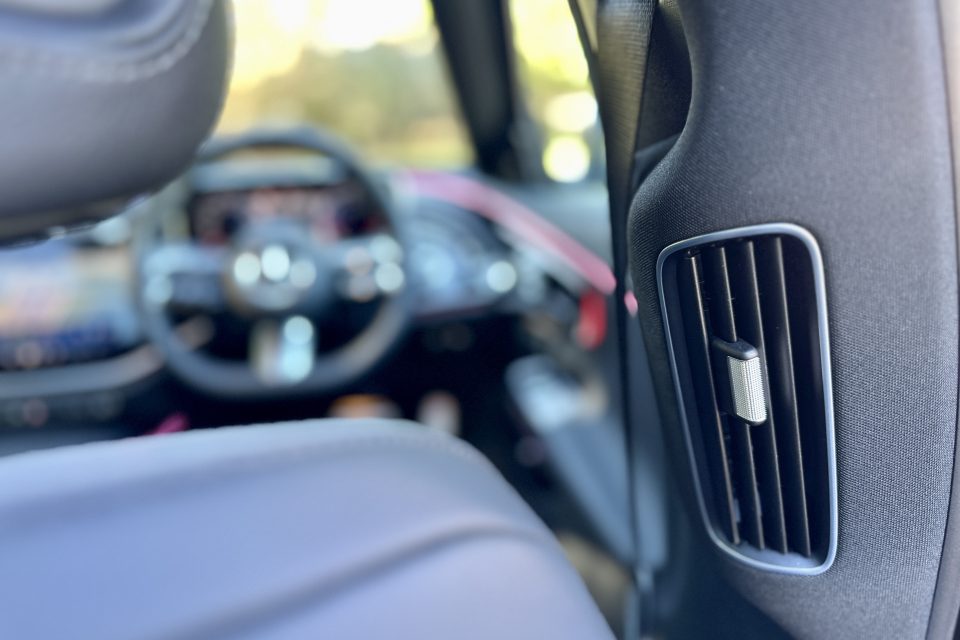
The “superscreen” that stretches across the dashboard in a seamless slab of glass might also seem a bit gimmicky, but it includes a screen for the front-seat passenger with audio controls and games like sudoku and shuffle puck. The dash-mounted camera also allows passengers to take selfies (literally). No one ever complains about having their own screen on a plane – it will be the same here.
That camera can also monitor the passengers’ movements to determine if they’re feeling uncomfortable or car sick and adjust the airflow, lighting and seating position to help. I expect the next model will also dispense ginger chews.
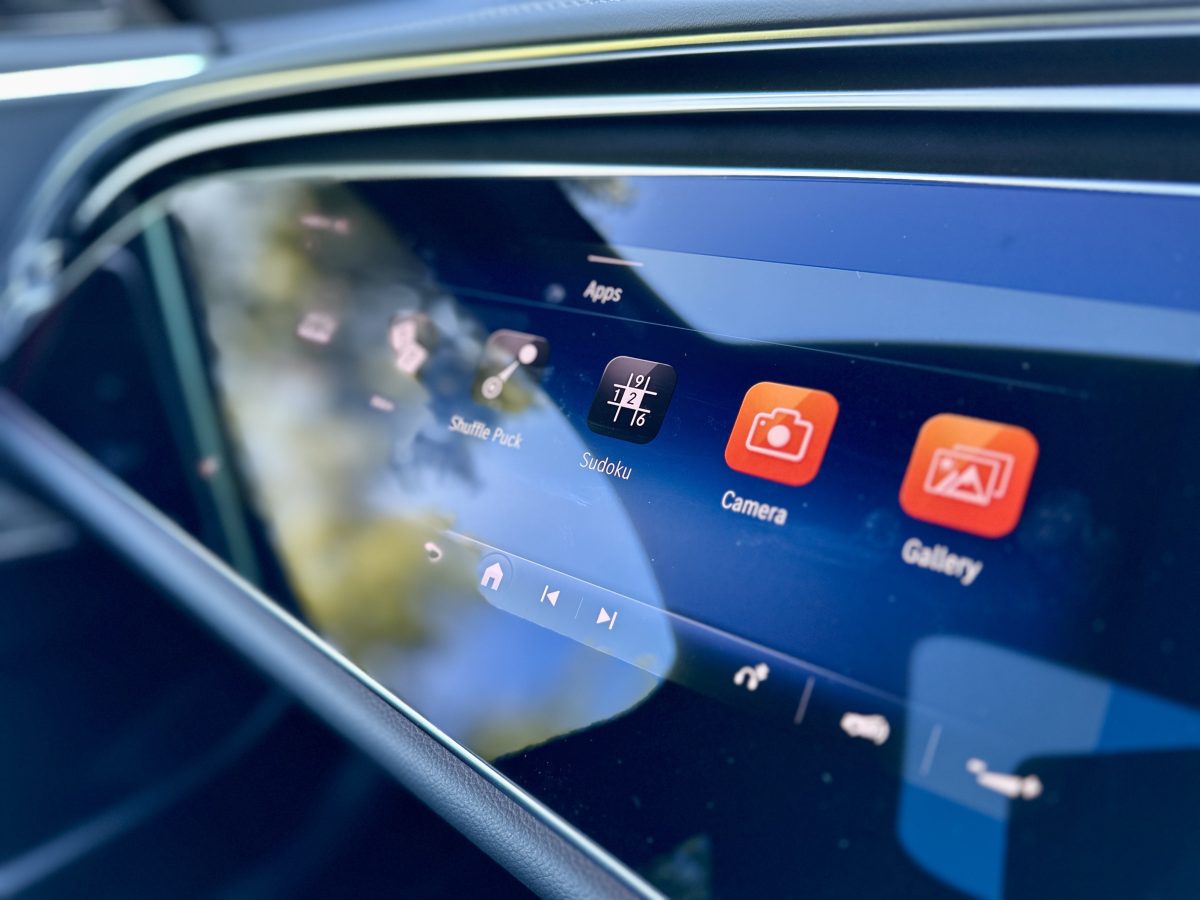
Fancy a game of sudoku? Photo: James Coleman.
The front seats also feature a “kinetic” function, which moves different parts around to ease your pressure points, even if they lack a full-on massage option.
Everything is impeccably well-made, too. I love the black ashwood centre console box. And I’ve never used car doors so much, just to hear the “thunk” they make when they close.
It feels special. So in the end, then, maybe I’ve been unduly influenced by its smaller sibling, the C-Class, which I once described as “perfect” and “right at home in the Garden of Eden”.
But I just thought this would be the same.
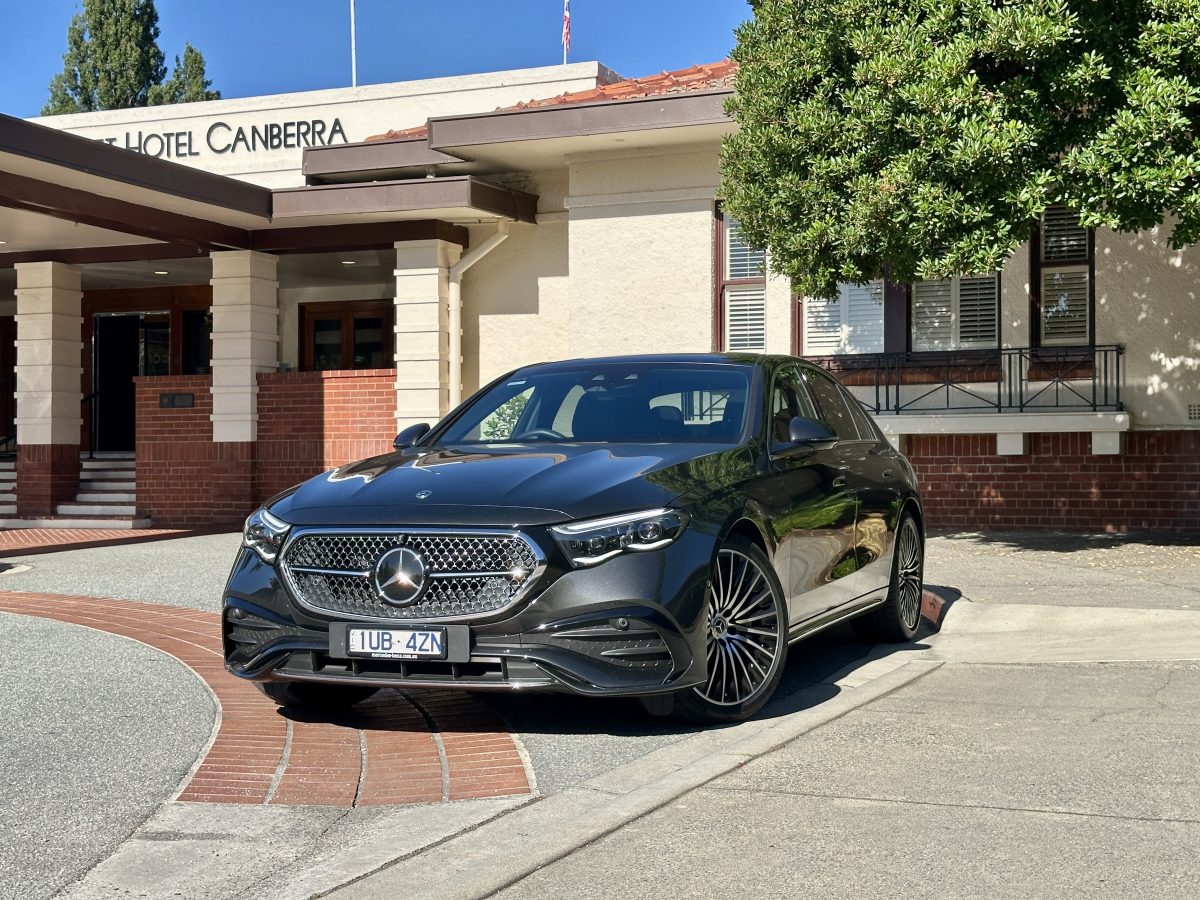
Not out of place. Photo: James Coleman.
2024 Mercedes-Benz E300
- $131,500 (plus on-road costs)
- 2-litre turbocharged four-cylinder petrol engine, 190 kW / 400 Nm
- 48-volt electric motor, 17 kW / 205 Nm
- Nine-speed automatic transmission, rear-wheel drive (RWD)
- 0-100 km/h in 6.2 seconds, 240 km/h
- 7.2 litres per 100 km claimed fuel consumption, 95 RON
- 1915 kg
- Not yet rated for safety.
Thanks to Mercedes-Benz Australia for providing this car for testing. Visit Wagga Motors for more information.
Original Article published by James Coleman on Riotact.







